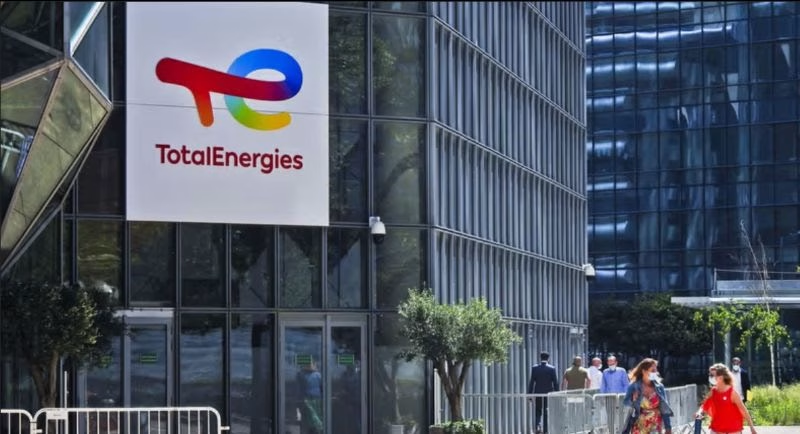By Alexandre Sherman
Early beginnings in sport
Well before co-founding Petrichor, Paul Dreisbach had always loved playing sports. Growing up, Dreisbach connected with his peers by playing soccer while living in Southeast Asia, where his parents did a lot of work for NGO’s and nonprofits. Even at a young age, he subconsciously recognized sport’s unique power to bind complete strangers together through something as innocent as kicking a soccer ball.
“Seeing how a ball can just change the environment of a room— or a street or a court— and no one cares about where you’re from, what language you speak, how much money you have, any of that right— your skin color, nothing. It’s just you’re there having fun and it’s about getting along with your neighbors, learning those skills, getting active, and just connecting with people.”
Dreisbach knew he wanted to further explore sport’s unifying capacity while following his athletic pursuits. This desire prompted him to study sports management and intercultural studies at Grace College & Seminary, located in Indiana, while playing soccer for the school’s team.
He would quickly befriend one of his teammates, a young man named Jordan Cone who would play a critical role in helping Dreisbach shape his ambition of using sport as a tool for community development.
“[We] became really good friends and then actually did some projects together just on our own. We have done some community projects through sport in Mexico, the [United] States, Canada, Central Africa […] He grew up in West Africa, so we went over to Central Africa to do some stuff there. And then I had since done projects in Haiti and back in Asia.
How Petrichor was born
dPetrichor’s roots trace back to when Cone returned to Cameroon to work at an international school and coach a D1 women’s club. He began to observe a clear lack of grassroots infrastructure and education that lays out pathways for youth football to develop into the top leagues.
Cone felt compelled to do something about it and reached out to Dreisbach for help.
“I think that was the moment where we were like, ‘Alright, let’s use our experience, our passion, the network that we’re privileged to have to try to start something,’” Dreisbach said.
Dreisbach already had an impressive background around soccer operations, running camps in a variety of countries like the Philippines, Thailand, Mexico, and France.
However, improving a region’s sports infrastructure has its unique set of challenges, as one would have to consider multiple facets, such as addressing barriers to entry, creating pathways that support elite player movement, as well as building ways for sport to drive economic activity.
“You’ve got your grassroots stuff down here and your pro clubs up here. Then, there’s this whole middle section of ‘How do they connect, who does that, and how is it done —and responsibly to the players to the organizations to everyone involved?’ We feel like we’re a bit of a newer player in this space of football development in Africa. Yes, we’re only six years old, but no one else has really solved this yet.”
Dreisbach and Cone founded Petrichor as a member-based model starting with 16 local clubs who applied to be part of their association. The purpose of Petrichor would be to step in and assist clubs and coaches by helping fill structural gaps.
“One of the clubs might have lacked admin education— ‘How do I register my players? How do I or can I make any money off this?’ Another academy might have lacked in coaching— ‘How do I actually coach kids, what’s the psychology behind a U15 team and U18 team, and how do I push them differently?’”
Because Petrichor doesn’t have their own academy, the association operates in a decentralized fashion, helping teams by providing equipment and administrative support, as well as organizing courses and tournaments.
“[Petrichor] is really laying the foundation and groundwork for ‘How does the child enter this the game, where do they enter the game, do they have to pay for it?’ And you start breaking down some of these barriers that keep kids from entering the game —whether that’s religion, finance, race, tribe, whatever.”
Why elite talent and inclusion can co-exist
One aspect that makes Petrichor particularly unique is how it seeks to build pathways for all players in Cameroon regardless of talent level.
“We’re not only working with elite groups, which is one of the main differences. A lot of groups come in —which is their model, and there’s nothing wrong with this —but they come in and they start an academy. It’s very walled off and exclusive where they go out and select the best players and only work with an exclusive group with the hopes of developing that talent and selling on.”
Instead, Petrichor’s focus is on improving young players’ access to the games and consistently developing youth talent on a broad scale rather than trying to spot a diamond in the rough.
“We’re kind of going a few steps before that and saying ‘we’re going to try to develop that talent on a consistent basis through all this community impact work, through sport, so that those players can consistently be found, have a program, and have access to the game —instead of just hoping that you can find a good player here and there. “
Through this approach, Petrichor can develop raw athletes and elevate elite talent by creating a lane for the most talented players of each club.
“For example, the U15 girls, we select the best girls from all the different academies, and they play on one team. There’s a pathway for the good players to come up through the main club of Petrichor—eventually they’ll play at the D2, semi-pro level in Cameroon.”
Catherine Mbengono is an example of a Petrichor success story. Today, she is a left-back on the Cameroon women’s national team who formerly took part in Petrichor’s association while playing for the Green City team.
Petrichor’s partnership with LaLiga
One of Petrichor’s most exciting projects is their ongoing partnership with LaLiga, the top professional football division of the Spanish football league system. With their assistance, Petrichor operates the first ever youth girls league in Cameroon, La Ligue D’Égalité, which also happens to be the largest girls development initiative in Cameroon.

“It’s pretty exciting to start something for the first time ever at that age group and really build a lot of hype and support around youth football for girls, which has just never happened.”
In addition to raising their skill level, Petrichor is also dedicated to helping girls pursue their dreams off the pitch.
“We actually help pay for their education. They get a scholarship in essence if they go through our elite program, which is just an incentive for them to keep playing well and doing well in school —taking a bit of a load off their family for the school costs.”
Partnering with one of the best soccer leagues in the world has its obvious benefits: more credibility, exposure, financial backing. However, Dreisbach notes that the collaboration with LaLiga has been successful due to its sincerity.

“We’ve talked to different partners who we’ve reached out to or reached out to us and just found out like “Ah, this isn’t why we’re doing this.’ If all you want out of this is a flashy marketing video and take a bunch of pictures with some kids in the community, what does that really do for them, us, or the organization?”
“Obviously, it’s hard to say no to funding because it it’s tough to get sometimes, but all the partners that have worked out best for us have aligned in vision and values, and they’re in it just as much as we are. When you find the people that are really in it for the right reasons, you stick with them.”
A marriage of social impact and financial sustainability
It’s no secret that funding is among the more critical components of the non-profit space, as donor acquisition and revenue growth are needed for NGOs to sustain their mission.
Dreisbach is naturally well-aware of these limitations, though Petrichor has never operated in the traditional non-profit model which would, for instance, consist of hiring a development director and engaging a whole donor team.
Instead, Dreisbach is focused on creating in-country revenue streams rather than solely relying on corporate sponsors and a few donors.

“We’re very clear with the direction we’re going. Our goal is to create a location in Cameroon where we can rent fields, run courses, do physical training. We can do high level elite PT, even media and game and analytics training for different people, for the divisions.”
Ultimately, the experiment is to develop the local economy around the game by offering a variety of sports-related services, which would then be carried out by trained individuals who came up through Petrichor’s programs.
“Just that alone will help fund the base programs and then play yourselves on top of that with the club and commercial and revenue streams. You’re just running a club at that point but you’re still doing the social impact at that very base level in the community.”
Looking ahead
Dreisbach has a lot on his plate these days. In addition to leading Petrichor, he works as a strategist with Goals for Girls, a remarkable organization that connects girls from different countries and backgrounds through soccer and cultural exchanges as a way to address social and health challenges. The non-profit has conducted 15 leadership summits in places such as India and South Africa, equipping over 2,700 girls with leadership training.
However, on his quest to make Petrichor the premier youth soccer development association in Cameroon, Dreisbach is focused on two key objectives: ensuring that Petrichor can sustainably fund itself to allow local leaders to fully take over, and connecting the gap between the grassroots and professional level.
While there’s much left to be accomplished, Dreisbach is mindful about the encouraging social impact Petrichor has had at the community level. For instance, as a byproduct of making competitive soccer more accessible for young athletes, families from different communities and academies are becoming friends and new networks are being formed.
Furthermore, Petrichor is having a ripple effect on the local economy that is becoming more evident as the association continues to scale.
“We can go into communities where we work and see direct economic and social impact of what we’ve done because every time I go, I’m blown away at the indirect impact. All the vendors, all the suppliers, all the people around what we do. Just the guy that does our jerseys — he did 2000 jerseys or something like this past year, he’s been able to grow his shop. Now he’s sending his kids to a better school, he’s hired someone. There’s all that kind of stuff that goes outside of the actual game, we’re all kind of lifting everyone up together through this.
The word petrichor refers to the smell of fresh rain falling on dry earth. The term is also a symbol of hope and growth —a fitting name for an organization whose mission is ultimately to create unprecedented opportunities.
Written by Alexandre Sherman of Elixir Sports, a platform dedicated to shed light on the work of individuals and organizations using sport to drive local and international impact, and advertise how such initiatives can be supported.











New Satirical Drama Nya Uriri (Pek Chi Liel) – The Widow’s Burden Sparks Conversations On Widowhood And Inheritance In African Culture